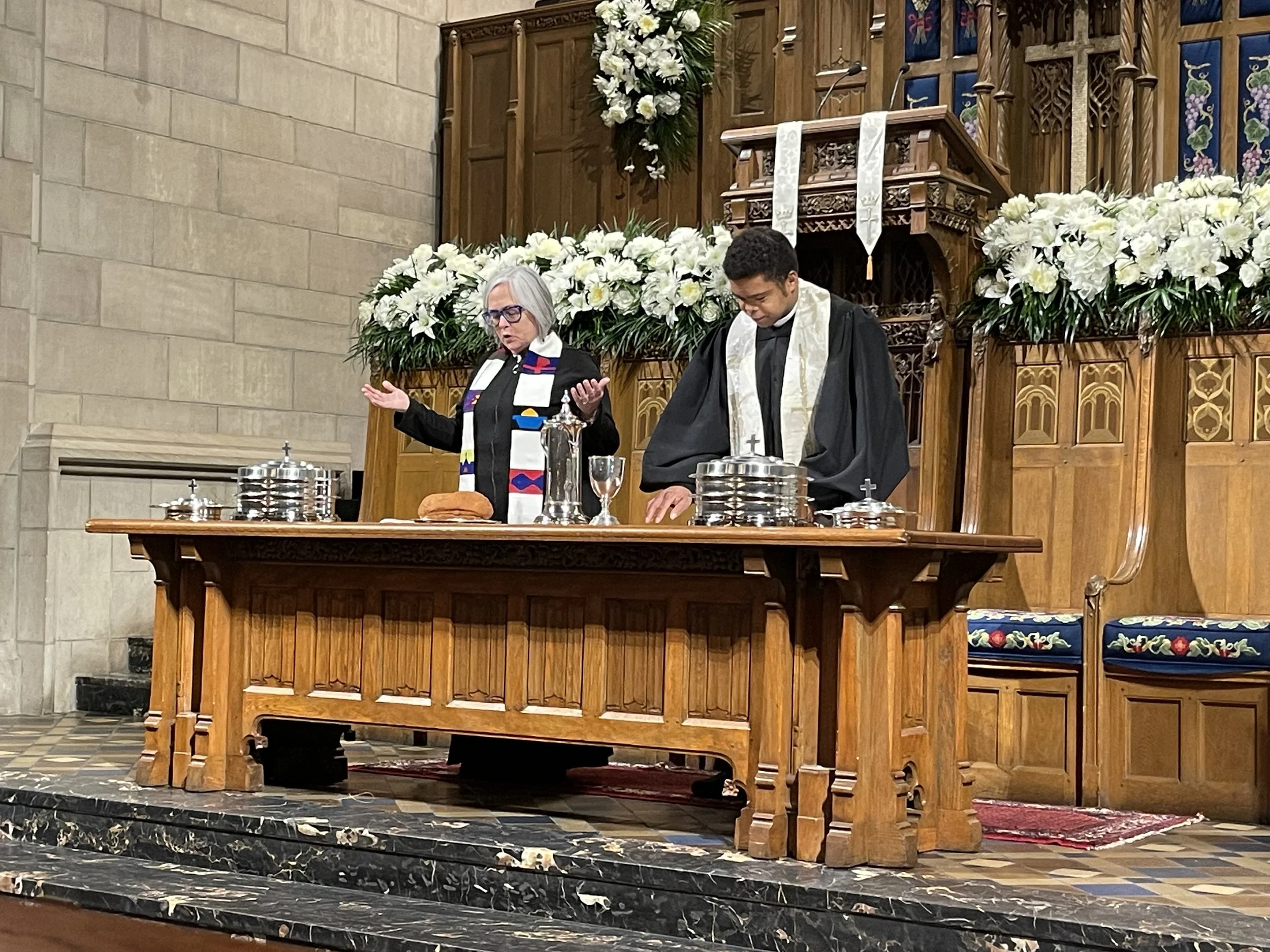What would a Presbyterian want in a new pope?
The Revs. Kristin Hutson and Joseph Lemuel Morrow preside over Easter Vigil at Fourth Presbyterian Church, Chicago, Ill. Photo: Gerald Farinas.
The Presbyterian Church (USA), as a Reformed Protestant denomination, doesn’t recognize papal authority—as bishop of Rome he is viewed as equal to its ruling and teaching elders—but that doesn’t mean it wouldn’t hope for certain qualities in a new pope that align with shared Christian values and global moral leadership.
Francis was the first bishop of Rome to welcome an official resident representative of the PCUSA to the Vatican. And he had meetings with Church of Scotland moderators. These are really good examples of why the papacy’s future is still important to us in the Reformed tradition.
If the PCUSA could cast a symbolic vote, it would likely hope for a pope who embodies our values.
Commitment to social justice
The PCUSA would want a pope who boldly speaks against economic inequality, racism, authoritarianism, and climate destruction.
It would want a pope who sees the Gospel as inseparable from the liberation of the oppressed—someone in the legacy of Pope Francis, who denounced capitalism’s failures and championed the poor.
Ecumenical openness
The PCUSA deeply values ecumenical dialogue. We would want that PCUSA presence at the Vatican to grow and flourish—helping further dialogue that in the end would reunite us at the Lord’s Table.
They would want a pope who builds bridges—not only with Protestant traditions but also with other world religions.
They would want someone who listens to and respects the theological gifts of the Reformed tradition, not as rivals but as siblings in Christ.
LGBTQ inclusion
Though the PCUSA has its internal debates, it officially affirms LGBTQ people in both membership and ministry.
It would hope for a pope who, even if constrained by doctrine, shows a real commitment to the dignity, safety, and belonging of LGBTQ people.
While Francis didn’t change Roman Church teaching that renders LGBTQ people as “inherently disordered,” he did start the wheels of evolution toward more inclusion of LGBTQ Catholics.
Gender equity
The PCUSA ordains women at all levels of leadership and would likely wish for a pope who supports women’s expanded roles in ministry, including leadership at the highest levels.
Even symbolic changes, like lifting barriers to women deacons, would be seen as progress.
Decentralized leadership
Reformed theology resists concentrated power in a single human leader.
While the PCUSA wouldn’t expect the papacy to vanish, it would hope for a pope who shares power, listens deeply to local contexts, and models humility rather than hierarchy.
Francis signaled a hope for this through his Synod on Synodality—attempting to move decision making from priests to more laypeople.
Transparency and repentance
The PCUSA would want a pope who confronts the Church’s complicity in abuse, colonialism, and injustice—not defensively but with deep repentance and a willingness to make reparations.
It would want a Church that is accountable, not above critique.
Environmental stewardship
The PCUSA has taken strong stances on climate action.
It would want a pope who defends Creation, uplifts Indigenous ecological wisdom, and confronts the sin of environmental degradation.
It would want a new pope that builds on Francis’ pro-environment encyclical Laudato si.
Focus on the margins
Like PCUSA commitment to Matthew 25 principles, the denomination would want a pope who centers the “least of these”—refugees, prisoners, the disabled, the sick, the outcast—not just as charity cases, but as people whose dignity and agency challenge the powerful.
Bring us closer as siblings in Christ
In short, the PCUSA wouldn’t seek a pope who reforms Catholicism into Presbyterianism—but one who follows Jesus so radically, tenderly, and courageously that we can call him a sibling in faith, even across our theological differences.
